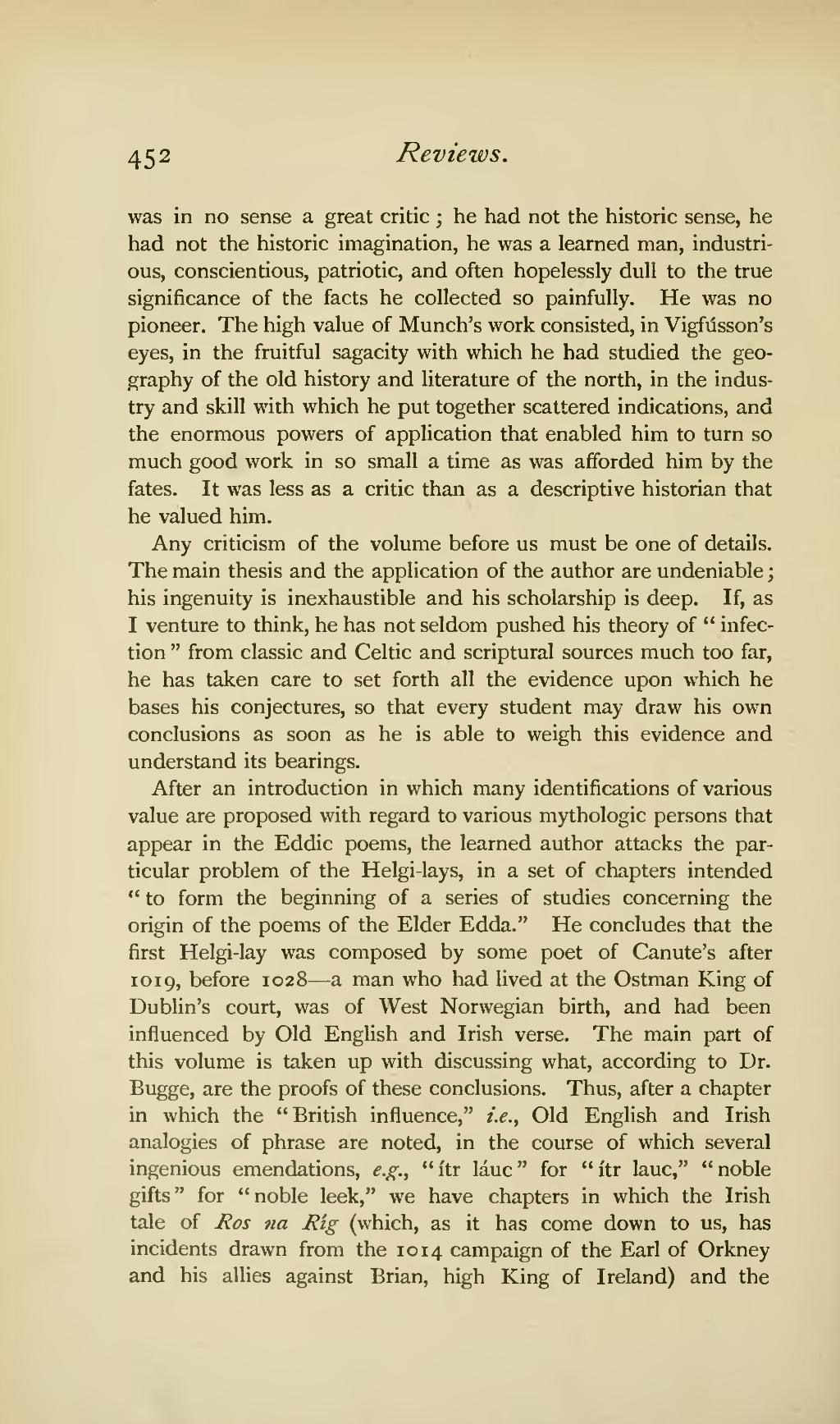452 Reviews.
was in no sense a great critic ; he had not the historic sense, he had not the historic imagination, he was a learned man, industri- ous, conscientious, patriotic, and often hopelessly dull to the true significance of the facts he collected so painfully. He was no pioneer. The high value of Munch's work consisted, in Vigfiisson's eyes, in the fruitful sagacity with which he had studied the geo- graphy of the old history and literature of the north, in the indus- try and skill with which he put together scattered indications, and the enormous powers of application that enabled him to turn so much good work in so small a time as was afforded him by the fates. It was less as a critic than as a descriptive historian that he valued him.
Any criticism of the volume before us must be one of details. The main thesis and the application of the author are undeniable ; his ingenuity is inexhaustible and his scholarship is deep. If, as I venture to think, he has not seldom pushed his theory of " infec- tion " from classic and Celtic and scriptural sources much too far, he has taken care to set forth all the evidence upon which he bases his conjectures, so that every student may draw his own conclusions as soon as he is able to weigh this evidence and understand its bearings.
After an introduction in which many identifications of various value are proposed with regard to various mythologic persons that appear in the Eddie poems, the learned author attacks the par- ticular problem of the Helgi-lays, in a set of chapters intended " to form the beginning of a series of studies concerning the origin of the poems of the Elder Edda." He concludes that the first Helgi-lay was composed by some poet of Canute's after 1 019, before 1028 — a man who had lived at the Ostman King of Dublin's court, was of West Norwegian birth, and had been influenced by Old EngUsh and Irish verse. The main part of this volume is taken up with discussing what, according to Dr. Bugge, are the proofs of these conclusions. Thus, after a chapter in which the "British influence," i.e., Old English and Irish analogies of phrase are noted, in the course of which several ingenious emendations, e.,?-., "itr lauc" for " itr lauc," "noble gifts" for "noble leek," we have chapters in which the Irish tale of Ros na Rig (which, as it has come down to us, has incidents drawn from the 10 14 campaign of the Earl of Orkney and his allies against Brian, high King of Ireland) and the
